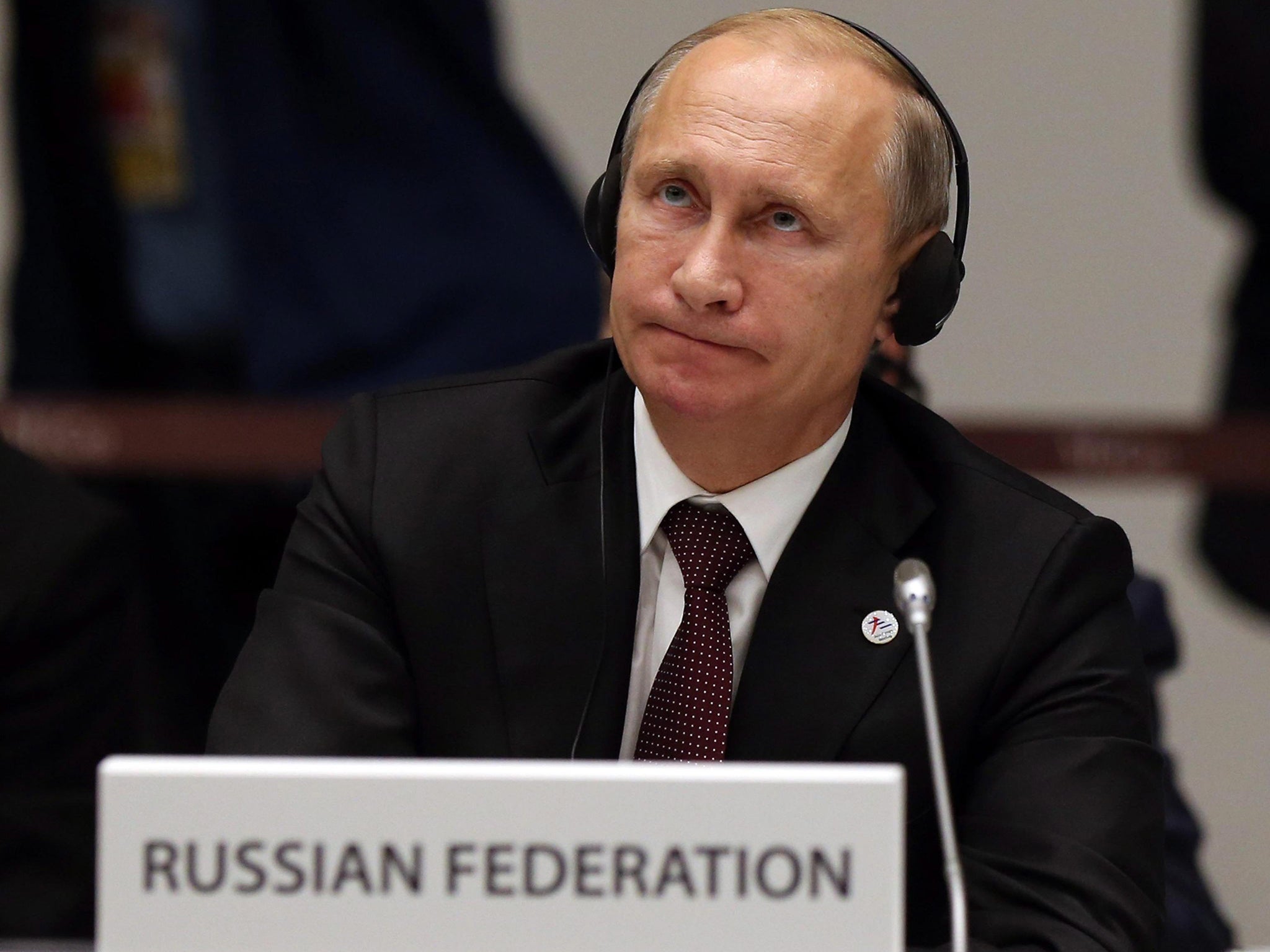Putin in Italy to get EU sanctions lifted, but no progress on Ukraine
Mr Putin’s annexation of Crimea has sent Russia’s relations with the West back to the frosty days of the Cold War

It has been a busy few days for Russian President Vladimir Putin, who spent the tail end of the week in Europe both to bolster the Kremlin’s influence in Belgrade and attempt rapprochement with the EU in Milan.
So busy, in fact, that he kept both the German Chancellor and the former Italian President waiting well into the night before gracing them with his presence.
Given that Italy’s Silvio Berlusconi is under partial house arrest for a tax fraud conviction, he probably was not too displeased at having to wait until 1am for his old skiing buddy. But there may have been less sympathy from German Chancellor Angela Merkel, who had to hang around until midnight for a meeting originally scheduled at 8pm on Thursday.
If this was Mr Putin’s charm offensive aimed at convincing EU leaders to ease sanctions on Russia, it got off to a shaky start, and appeared to continue in the same vein. The following day after talks between the Russian leader and his Ukrainian and EU counterparts, Ms Merkel emerged with bad news about the stand-off between Russian-backed rebels in Ukraine and the government in Kiev. “I cannot see a breakthrough here at all so far,” she told reporters.
The Kremlin spokesman Dmitry Peskov gave a similar assessment: “The talks are indeed difficult, full of misunderstandings [and] disagreements.”
There was some optimism as talks went into the evening yesterday on the sidelines of an Asia-Europe meeting in Milan. Mr Putin and Ukraine’s President Petro Poroshenko reached a tentative deal on a dispute over gas supplies, but Western leaders were clear that Moscow still had a lot to do to firm up a ceasefire in eastern Ukraine.
Mr Putin’s annexation of Crimea in March and the alleged presence of Russian troops and tanks supporting separatists in eastern Ukraine have sent Russia’s relations with the West back to the frosty days of the Cold War. In an attempt to force Russia to intervene and end the conflict, the EU and the US have imposed sanctions on Russian businesses, individuals and sectors of the economy. Those sanctions are beginning to bite and Mr Putin may have been hoping that his brokering of a ceasefire last month in Minsk would help soften the EU’s stance.
But deadly violations of the truce continue. “If you look at the scorecard of whether Minsk is being respected and adhered to, we’re still a very long way off delivery,” said one EU diplomat. “At the moment there is no appetite to roll back [the sanctions], and no particular appetite to move forward.”

This is leading to fears that Ukraine will become a frozen conflict, battering the nation’s economy and leaving a borderline failed state right on the EU’s doorstep for years to come. Matthew Bryza, a former US diplomat now working for the Estonia-based International Centre for Defence Studies, believes that is exactly what the Kremlin wants. “The Russians play a much longer game,” he says. “They are destabilising to sustain influence and not lose Ukraine to the West, and getting ready to play for another day. We’re thinking this crisis is going to be over, we’re going to turn to Islamic State... They’re thinking, ‘The West is going to do exactly that, and when they [the West] fall back asleep, we’re going to be able to screw around again’.”
And Mr Putin clearly has his sights on expanding Moscow’s influence. He was late for Ms Merkel on Thursday because he was attending a military parade in Serbia. Belgrade has experienced years of difficult negotiations to try and join the EU, giving Mr Putin the opportunity to reassure Serbia’s leaders that there were other allies in the region.
As the talks in Milan dragged on, there was some progress on the gas issue. Russia has halted supplies to Ukraine over an argument about unpaid bills, raising fears of winter shortages and a disruption of supply to the EU. “We have agreed on the main parameters of the [gas] contract,” President Poroshenko said.
But Mr Bryza urged against being overly optimistic. “This meeting is in no way a thaw,” he told The Independent. “It is an attempt by President Putin to buy time at a moment when sanctions are hurting the Russian economy and his strength among the oligarchic groups.”
Join our commenting forum
Join thought-provoking conversations, follow other Independent readers and see their replies
Comments